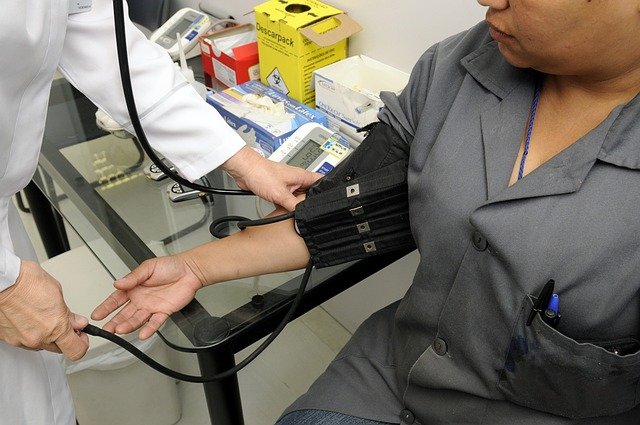Understanding the Diagnosis of Bipolar Disorder: Tests and Evaluation Explained
Identifying the symptoms of bipolar disorder is a crucial first step toward receiving appropriate care. Rather than relying on a single test, diagnosis involves a thorough assessment that includes clinical interviews, a review of personal and medical history, and the use of standardized screening methods. This guide outlines how mental health professionals evaluate bipolar disorder, what the diagnostic journey typically involves, and the importance of early identification in developing an effective treatment plan.

Why is getting the right bipolar diagnosis so important?
Bipolar disorder is a complex mental health condition characterized by extreme mood swings that can significantly impact a person’s daily life. Getting the right diagnosis is crucial because it sets the foundation for effective treatment. Misdiagnosis can lead to inappropriate medication, worsening symptoms, and prolonged suffering. An accurate diagnosis enables healthcare providers to create a tailored treatment plan that may include mood stabilizers, psychotherapy, and lifestyle adjustments. Moreover, understanding one’s condition can provide relief and help individuals and their families better cope with the challenges of bipolar disorder.
How do doctors initially recognize signs of bipolar disorder?
Doctors often first spot signs of bipolar disorder through careful observation and patient reports. They look for distinct patterns of mood episodes, including manic or hypomanic periods characterized by elevated energy, decreased need for sleep, and impulsive behavior. Depressive episodes, marked by persistent sadness, loss of interest in activities, and fatigue, are also key indicators. Clinicians pay attention to the frequency, duration, and severity of these mood swings. Additionally, they consider family history, as bipolar disorder has a genetic component. Initial recognition may occur during routine check-ups, mental health screenings, or when patients seek help for related symptoms like anxiety or depression.
What specific tests are used to diagnose bipolar disorder?
While there is no single definitive test for bipolar disorder, several assessment tools help in diagnosis:
-
Mood Disorder Questionnaire (MDQ): A screening instrument that helps identify bipolar symptoms.
-
Bipolar Spectrum Diagnostic Scale (BSDS): A self-report tool that assesses the likelihood of bipolar spectrum disorders.
-
Young Mania Rating Scale (YMRS): Used to measure the severity of manic symptoms.
-
Hamilton Depression Rating Scale (HDRS): Evaluates the severity of depressive symptoms.
-
Structured Clinical Interview for DSM-5 (SCID-5): A comprehensive diagnostic interview conducted by mental health professionals.
These tests, combined with a thorough psychiatric evaluation and medical history review, help clinicians make an accurate diagnosis.
How long does the bipolar disorder diagnostic process typically take?
The time it takes to diagnose bipolar disorder can vary significantly from person to person. In some cases, a diagnosis may be made within a few weeks of initial consultation, while for others, it can take months or even years. This variability is due to several factors:
-
The cyclical nature of bipolar disorder, which may require observation over time to identify clear patterns.
-
The potential overlap of symptoms with other mental health conditions, necessitating differential diagnosis.
-
The individual’s willingness to seek help and accurately report symptoms.
-
The expertise and approach of the healthcare provider.
On average, it may take several appointments over a period of 3-6 months to reach a conclusive diagnosis. However, this timeline can be shorter or longer depending on the individual case.
What challenges are involved in diagnosing bipolar disorder?
Diagnosing bipolar disorder presents several unique challenges for mental health professionals. One major difficulty is that patients often seek help during depressive episodes, potentially leading to a misdiagnosis of unipolar depression. Hypomanic episodes may be overlooked or perceived as periods of high productivity rather than symptoms of illness. Additionally, comorbid conditions such as anxiety disorders, substance abuse, or personality disorders can complicate the diagnostic picture. The stigma surrounding mental health issues may also cause individuals to downplay or hide their symptoms, further complicating the process. Lastly, the episodic nature of bipolar disorder means that symptoms may not be present during evaluation, requiring a careful review of historical information and collateral reports from family members or close friends.
How can individuals prepare for a bipolar disorder evaluation?
Preparing for a bipolar disorder evaluation can significantly aid the diagnostic process. Here are some steps individuals can take:
-
Keep a mood diary: Track daily moods, sleep patterns, energy levels, and any unusual behaviors.
-
Gather medical history: Compile a list of current medications, past treatments, and family history of mental health conditions.
-
Prepare questions: Write down any questions or concerns to discuss with the healthcare provider.
-
Bring a trusted friend or family member: They can provide additional perspectives and support during the evaluation.
-
Be honest and open: Provide accurate and detailed information about symptoms, even if they seem embarrassing or insignificant.
-
Collect school or work records: These can help illustrate changes in performance or behavior over time.
By taking these steps, individuals can contribute to a more comprehensive and accurate evaluation, potentially speeding up the diagnostic process and leading to more effective treatment planning.
In conclusion, diagnosing bipolar disorder is a complex process that requires a comprehensive approach. While it can be challenging and time-consuming, an accurate diagnosis is crucial for effective treatment and management of the condition. By understanding the diagnostic process and actively participating in the evaluation, individuals can play a vital role in their mental health journey.
This article is for informational purposes only and should not be considered medical advice. Please consult a qualified healthcare professional for personalized guidance and treatment.




